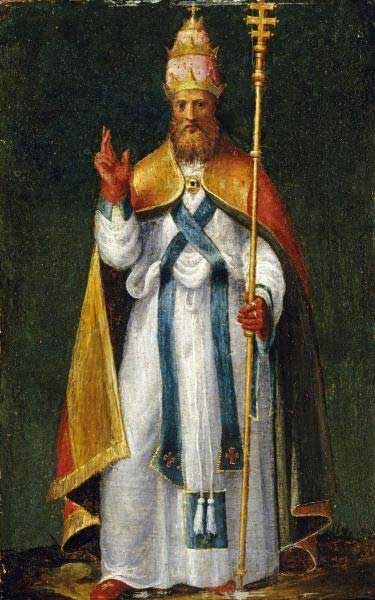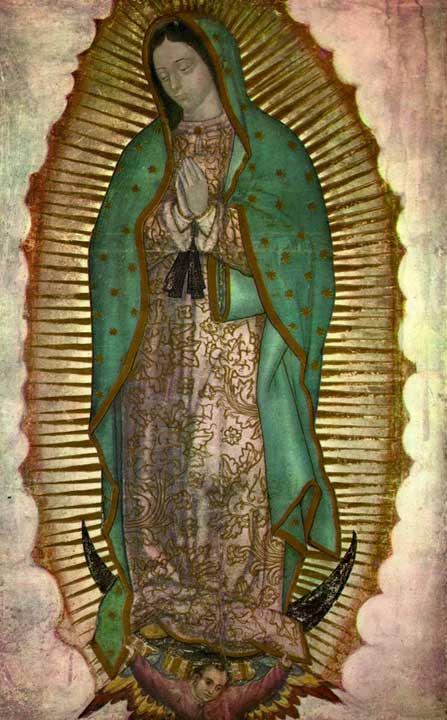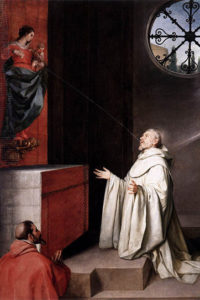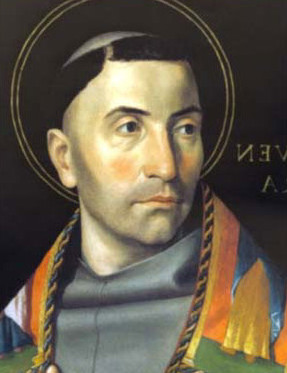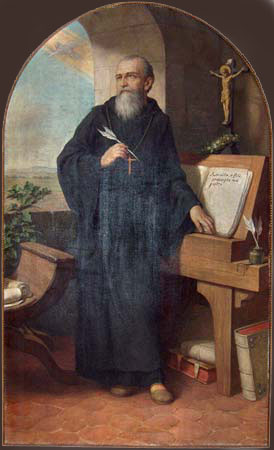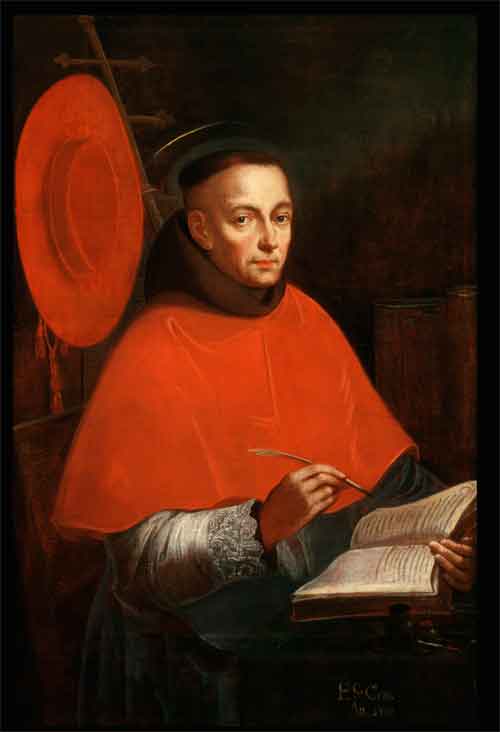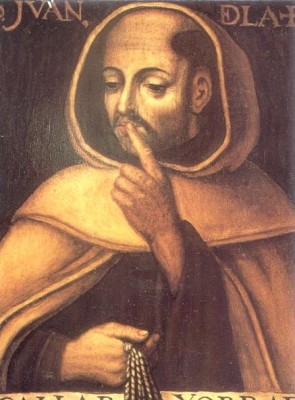Podcast: Play in new window | Download (Duration: 4:34 — 3.1MB) | Embed
Subscribe: Apple Podcasts | Spotify | Amazon Music | Android | Pandora | iHeartRadio | JioSaavn | Podchaser | Gaana | Podcast Index | Email | TuneIn | Deezer | Anghami | RSS | More
From a commentary of Luke by Venerable Bede, priest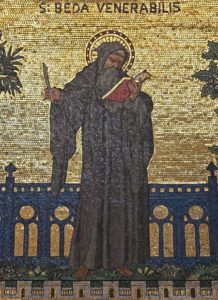
(Lib 1, 46-55: CCL 120, 37-39)
The Magnificat
Mary said: My soul proclaims the greatness of the Lord, my spirit rejoices in God my Savior. The Lord has exalted me by a gift so great, so unheard of, that language is useless to describe it, and the depths of love in my heart can scarcely grasp it. I offer then all the powers of my soul in praise and thanksgiving. As I contemplate his greatness, which knows no limits, I joyfully surrender my whole life, my senses, my judgment, for my spirit rejoices in the eternal Godhead of that Jesus, that Savior, whom I have conceived in this world of time.
The Almighty has done great things for me, and holy is his name.
Mary looks back to the beginning of her song, where she said: My soul proclaims the greatness of the Lord. Only that soul for whom the Lord in his love does great things can proclaim his greatness with fitting praise and encourage those who share her desire and purpose, saying: Join with me in proclaiming the greatness of the Lord; let us extol his name together.
Those who know the Lord, yet refuse to proclaim his greatness and sanctify his name to the limit of their power, will be called least in the kingdom of heaven. His name is called holy because in the sublimity of his unique power he surpasses every creature and is far removed from all that he had made.
He has come to the help of his servant Israel for he has remembered his promise of mercy. In a beautiful phrase Mary calls Israel the servant of the Lord. The Lord came to his aid to save him. Israel is an obedient and humble servant, in the words of Hosea: Israel was a servant, and I loved him.
Those who refuse to be humble cannot be saved. They cannot say with the prophet: See, God comes to my aid; the Lord is the helper of my soul. But anyone who makes himself humble like a little child is greater in the kingdom of heaven.
The promise he made to our fathers, to Abraham and his children for ever. This does not refer to the physical descendants of Abraham, but to his spiritual children. These are his descendants, sprung not from the flesh only, but who, whether circumcised or not, have followed him in faith. Circumcised as he was, Abraham believed, and this was credited to him as an act of righteousness.
The coming of the Savior was promised to Abraham and to his descendants for ever. These are the children of promise, to whom it is said: If you belong to Christ, then you are descendants of Abraham, heirs in accordance with the promise.
COLLECT
O God, who, seeing the human race fallen into death,
willed to redeem it by the coming of your Only Begotten Son,
grant, we pray,
that those who confess his Incarnation with humble fervor
may merit his company as their Redeemer.
Who lives and reigns with you in the unity of the Holy Spirit,
one God, for ever and ever.

